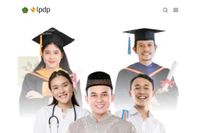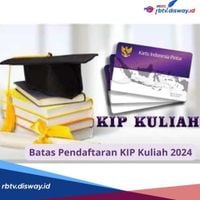As the landscape of higher education continues to evolve, scholarship programs like KIP Kuliah 2025 and Beasiswa Indonesia Bangkit (BIB) 2025 are pivotal in enhancing accessibility for students facing financial challenges in Indonesia. With the KIP Kuliah 2025 program already open for registration, students are encouraged to take advantage of this opportunity to gain the financial support needed to pursue their academic ambitions.
The KIP Kuliah 2025 program serves as a government initiative aimed at increasing access to higher education for outstanding students from economically disadvantaged families. By providing subsidies for tuition fees, books, and other academic necessities, the program eases the burden on students, allowing them to focus more on their education than on financial limitations.
KIP Kuliah 2025 registration is now open, and students interested in applying must be aware of the specific requirements to ensure a smooth application process. Required documents for this extensive scholarship program include a photocopy of the last diploma or graduation certificate, a photocopy of the Family Card (KK), photocopies of the Identity Card (KTP), a letter of inability from an authorized institution, and several other supporting documents. These documents are crucial for the registration process and ensure that applicants meet the eligibility criteria.
Selection criteria for KIP Kuliah include academic performance, the economic status of the family, academic achievements, and compliance with the program's rules. The program aims to identify candidates who are truly in need of financial assistance and who have the potential for exceptional academic performance.
In addition to KIP Kuliah, another promising opportunity for aspiring students is the Beasiswa Indonesia Bangkit (BIB) 2025, which will be available starting April 1, 2025. This scholarship program is a collaborative effort between the Ministry of Religion and the Lembaga Pengelola Dana Pendidikan (LPDP) from the Ministry of Finance of Indonesia. The BIB seeks to enhance human resource quality within the Ministry of Religion across various fields, including science, technology, the social sciences, and religious studies.
Prof. Phil. Kamaruddin Amin, M.A., Ph.D., the Secretary-General of the Ministry of Religion, emphasized the program's core mission by stating, "Kami ingin memberikan kesempatan seluas-luasnya bagi masyarakat untuk melanjutkan pendidikan tinggi, baik di dalam maupun luar negeri, tanpa terkendala biaya." This commitment highlights the intention to open doors for students who may have felt restricted by financial barriers, providing comprehensive funding for studies both at home and abroad.
Potential applicants for BIB can choose from several types of scholarships: general scholarships aimed at the broader community within the Ministry, achievement scholarships awarded for academic and non-academic successes, and target scholarships designed for specific programs and needs, such as the Santri Berprestasi program. This diversification of scholarship types ensures that a wide range of students can find support applicable to their unique situations and accomplishments.
The path to applying for BIB involves a clear understanding of the selection process and eligibility criteria. Applicants must demonstrate significant academic or non-academic achievements, such as winning national or international competitions or maintaining excellent academic records. By recognizing these achievements, the program aims to reward excellence and support future leaders in Indonesia.
Both the KIP Kuliah 2025 and BIB 2025 scholarship programs represent a significant commitment from the Indonesian government to enhance educational access and equity. They aim to bridge the gap between students' ambitions and their financial realities, helping cultivate a generation of skilled professionals who can contribute meaningfully to society.
In a rapidly changing world where higher education plays a critical role in personal and professional development, these programs not only provide financial lifelines but also foster an environment where students can thrive independently and excel. As these initiatives unfold, they are set to inspire countless students to reach for their educational dreams without the burden of financial strain.






